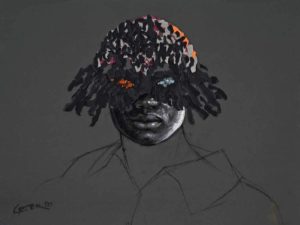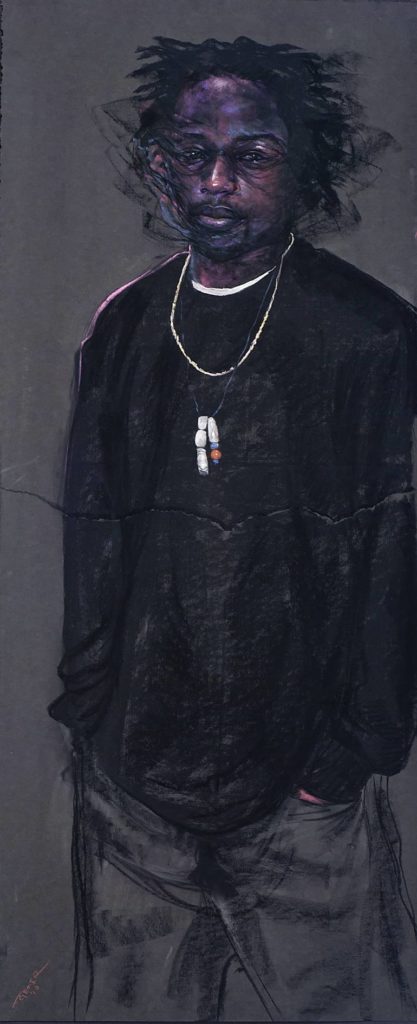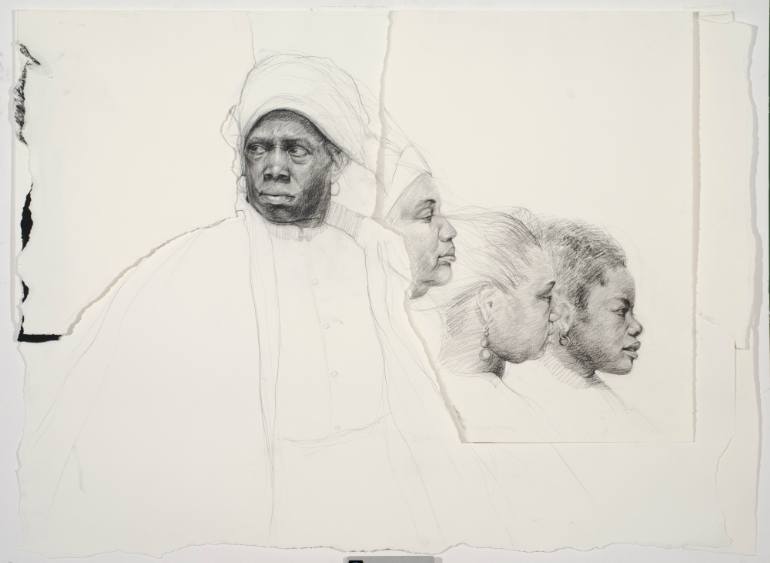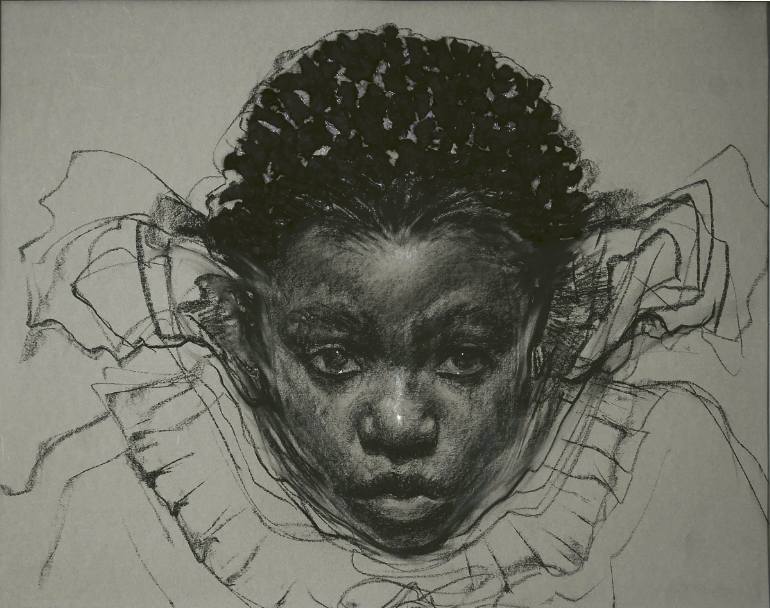
Tyrone Geter
About:
Throughout my career, the human form has been the mechanism that makes it possible for me to speak my truth about my life, beliefs, and the varied and colorful histories of my people. Early in my career, I believed that the more realistic the style and technique, the more significant and profound the statement; that the ability to communicate experiences was greatly improved by a well-rendered figure. Nigeria changed that notion. Living in Africa from 1979 – 1987 profoundly transformed my life and work.

Myson, 2016.
The richness, color, and complexities of the Nigeria’s people and cultures showed me that creative interpretation combined with relevant ideas were also important factors. I began to push the personal limits of my approach to the figure, exploring the use of multiple lines that have always been a natural outgrowth of my drawings. The boundaries of realistic interpretation began to morph and expand freeing me to create at a new and exciting level. I moved from the influence of the pure geometric shapes of Islamic art and began using and adapting torn paper as a free hanging collage element as well as incorporating overlapping edges to create motion and mixed media.

Backache, 2016.

Thinking about Tom, 2016.
Drawing From The Lifeline is the culmination of many influences and years of study. Its themes originate from an earlier concept, Purgatory Ain’t Nothin’ But The Blues. In my work, “purgatory” is defined as a concept that carries emotional weight that is generational in scope rather than functioning as a traditional religious doctrine or belief. It is analogues to the crushing, over-powering reality of the blues of which there are many — the “I ain’t got me no money blues,” “my baby done gone and left me blues”, “another man done gone blues”, “I need a job blues.” As BB King so eloquently put it “If you ever been mistreated, then you know just what I’m talking about.” The “purgatory of the blues” is ever present and speaks to the human condition. Purgatory Ain’t Nothin’ But The Blues uses all aspects of African and African American life and culture as themes for the subject it explores. Series within the Purgatory collection include Black Face; Black Works; Dark Angels; Survival; Mask; Ghetto Angel; Ain’t I A Woman and Living In The Light Of Hell’s Shadow, to name a few.
(text website Tyrone Geter)
